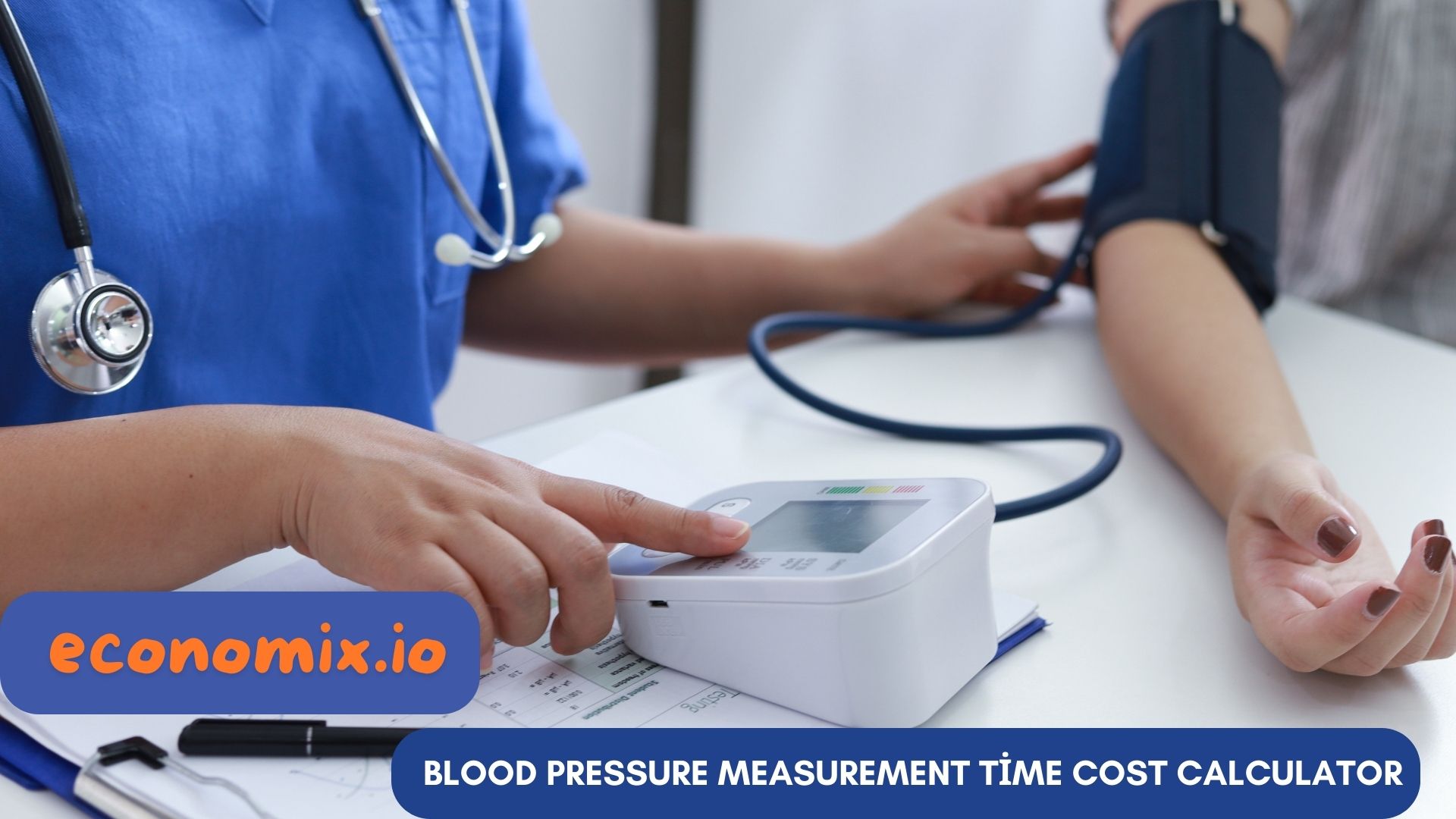Table of Contents
- Are You Underestimating the Time You Spend on Blood Pressure Measurements?
- Why is Blood Pressure Monitoring Crucial for Your Health?
- How Much Time Are You Really Spending on Blood Pressure Measurements?
- Why Use the Blood Pressure Measurement Time Cost Calculator?
Last updated: August 22, 2024.
Are You Underestimating the Time You Spend on Blood Pressure Measurements?

Monitoring your blood pressure is a vital practice for maintaining your health, especially in today's fast-paced world. However, have you ever stopped to consider the amount of time you actually spend on these measurements? Time is a precious resource, and knowing how much of it you dedicate to checking your blood pressure can help you manage it better. Our Blood Pressure Measurement Time Cost Calculator can give you insights into this often-overlooked aspect of health management.
But why is this so important? Let's delve into the significance of monitoring blood pressure and how our tool can assist you in keeping your health in check without costing you too much time.
Why is Blood Pressure Monitoring Crucial for Your Health?
Blood pressure is more than just a number your doctor checks at every visit—it's a key indicator of your overall cardiovascular health. High blood pressure, also known as hypertension, is often called the "silent killer" because it usually presents no symptoms until significant damage has already occurred. It can lead to severe health issues such as heart disease, stroke, kidney damage, and even eye problems. To learn more about heart disease, visit Heart Disease at Harvard Health.
Understanding your blood pressure readings is critical. These readings consist of two numbers: the systolic (upper) number, which measures the pressure in your arteries when your heart beats, and the diastolic (lower) number, which measures the pressure in your arteries when your heart rests between beats.
Here’s a quick guide to what your blood pressure numbers mean:
- Normal: Less than 120/80 mm Hg
- Elevated: 120-129/less than 80 mm Hg
- Hypertension Stage 1: 130-139/80-89 mm Hg
- Hypertension Stage 2: 140 or higher/90 or higher mm Hg
- Hypertensive Crisis: Higher than 180/120 mm Hg—requires immediate medical attention.
Monitoring your blood pressure regularly allows you to detect any potential issues early on, giving you the chance to make necessary lifestyle adjustments or seek medical advice before it’s too late. As the old saying goes, “An ounce of prevention is worth a pound of cure.” But as essential as it is to monitor your blood pressure, it’s equally important to manage the time you spend doing it.
How Much Time Are You Really Spending on Blood Pressure Measurements?
This is where our Blood Pressure Measurement Time Cost Calculator comes into play. This handy tool helps you quantify the time you dedicate to monitoring your blood pressure, whether it’s daily, weekly, or even monthly. By inputting your daily measurement frequency and the time spent per measurement, the calculator provides you with a clear picture of your time investment over different periods—daily, weekly, monthly, semi-annually, and annually.
For example, if you take two measurements per day and each takes about three minutes, that’s six minutes daily. While six minutes might not seem like much, it adds up to 42 minutes a week, roughly 3 hours a month, and over 36 hours a year! That’s more than a full day spent on blood pressure monitoring alone.
Understanding this time cost can help you better manage your schedule and integrate blood pressure monitoring into your routine without it feeling like a burden. “Time and health are two precious assets that we don't recognize and appreciate until they have been depleted.” With this calculator, you can stay on top of both.
Why Use the Blood Pressure Measurement Time Cost Calculator?
The benefits of using this calculator extend beyond just knowing your time expenditure. Here’s why it’s a valuable tool:
- Efficiency: It helps you streamline your health management routine by providing a clear overview of the time you spend on blood pressure measurements. This allows you to make informed decisions about how to optimize your time.
- Health Awareness: Regularly tracking your blood pressure is essential, but being aware of the time you spend on it encourages a more mindful approach to health monitoring. This awareness can lead to better compliance with your health regime, ultimately leading to better health outcomes.
- Motivation: Seeing how little time it actually takes to monitor your blood pressure regularly can be motivating. It reinforces the idea that such a small time investment can lead to significant health benefits.
- Balance: By understanding the time cost, you can balance your health management practices with other important aspects of your life, ensuring that you don’t become overwhelmed by one or the other.
Taking the time to monitor your blood pressure is a small investment with potentially life-saving returns. However, being aware of the time you spend on these measurements is crucial for maintaining balance in your life. The Blood Pressure Measurement Time Cost Calculator is a simple yet effective tool that helps you keep track of this investment, ensuring that you stay on top of your health without sacrificing your precious time.
“Health is not valued until sickness comes,”
so take control of your health now—efficiently and effectively. Start using the Blood Pressure Measurement Time Cost Calculator today to make the most of your time and your health.
- American Heart Association. (2024). Understanding Blood Pressure ..
- Cleveland Clinic. (2022). Blood Pressure: Overview and Test Details..